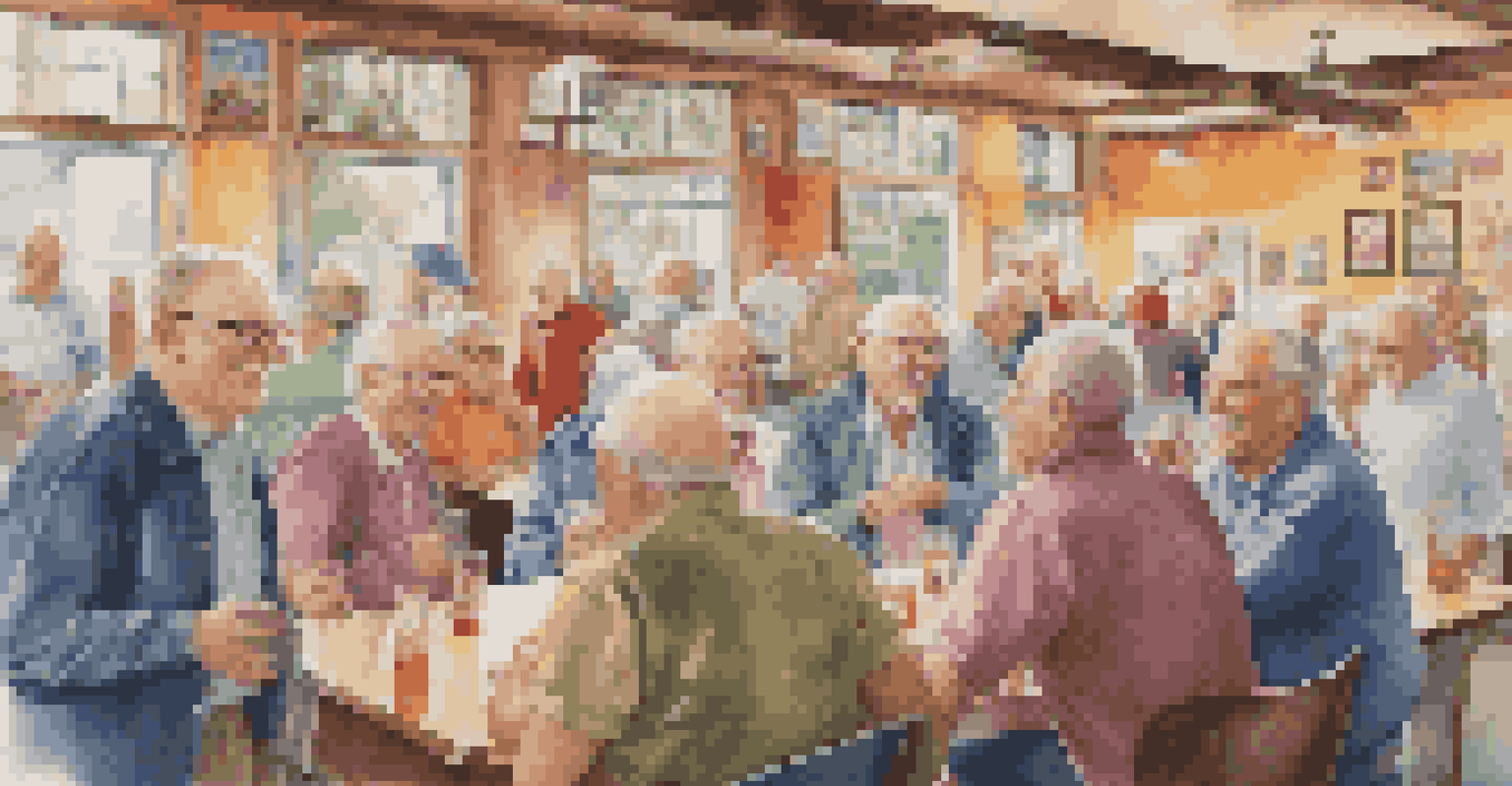Healthy Aging: Preventive Health Check-Ups for Older Men

Understanding Healthy Aging and Its Importance
Healthy aging is about more than just avoiding illness; it's about living your best life as you grow older. For men, this means being proactive about their health through regular check-ups and preventive care. As we age, our bodies undergo various changes, making it essential to stay ahead of potential health issues.
Aging is not lost youth but a new stage of opportunity and strength.
It's easy to think of check-ups as just a formality, but they can be life-saving. Regular visits to your healthcare provider allow for early detection of conditions like heart disease and diabetes, which are particularly crucial for older men. By focusing on preventive measures, you can maintain your independence and quality of life.
Moreover, healthy aging encompasses mental, emotional, and social well-being. Engaging with your healthcare team about all aspects of your health can lead to comprehensive care, helping you navigate the challenges of aging while enjoying the journey.
Key Health Screenings for Older Men
As men age, certain health screenings become increasingly important. These include cholesterol checks, blood pressure measurements, and diabetes screening. The earlier these conditions are identified, the better the chances of effective management and treatment.

Prostate health is another critical area requiring attention. Men should discuss prostate-specific antigen (PSA) testing with their doctors, especially if they have a family history of prostate cancer. This proactive approach to screening can help catch issues early when they are more treatable.
Proactive Health Check-Ups Matter
Regular health check-ups are crucial for early detection and management of conditions like heart disease and diabetes as men age.
Additionally, don’t overlook the importance of regular cancer screenings, such as colonoscopies and skin checks. These screenings are vital as they can help detect cancers at earlier stages, significantly improving treatment outcomes.
The Role of Vaccinations in Aging Well
Vaccinations are not just for children; they play a crucial role in maintaining health as we age. Older adults, particularly men, should stay updated on their vaccines, such as the flu shot and pneumonia vaccine, to reduce the risk of severe illness. These preventative measures can help ward off infections that could lead to serious complications.
The secret to healthy aging is to stay active and engaged, both physically and mentally.
Additionally, the shingles vaccine is recommended for older adults, as shingles can cause debilitating pain and complications. By getting vaccinated, you’re not just protecting yourself; you’re also helping to shield those around you from contagious diseases.
Discussing vaccinations with your healthcare provider ensures you're aware of what’s recommended based on your health history and lifestyle. It’s a simple yet effective step towards healthier aging.
The Importance of Mental Health Check-Ups
Mental health is just as vital as physical health, particularly for older men who may face life changes such as retirement or loss of loved ones. Regular mental health check-ups can help identify issues like depression or anxiety early on. Addressing these concerns is essential for maintaining overall well-being.
Talking to a healthcare professional about mental health can feel daunting, but it’s crucial. Just as you wouldn’t ignore persistent physical symptoms, you shouldn’t overlook emotional ones. Seeking help is a sign of strength and can lead to valuable support and treatment options.
Nutrition Fuels Healthy Aging
A balanced diet rich in essential nutrients can significantly support overall health and energy levels in older men.
Engaging in community activities or social groups can also bolster mental health. Staying connected and active not only promotes emotional well-being but can also enhance physical health, creating a holistic approach to aging.
Nutrition: Fueling Healthy Aging
Good nutrition plays a vital role in healthy aging, especially for older men who may have different dietary needs. A balanced diet rich in fruits, vegetables, lean proteins, and whole grains can help maintain energy levels and support overall health. It's about fueling your body with the right nutrients to keep it functioning optimally.
Consulting with a nutritionist can provide personalized dietary recommendations based on individual health conditions and lifestyle. They can help you navigate specific dietary restrictions or preferences while ensuring you get the necessary nutrients.
Remember, healthy eating isn’t about strict diets; it’s about making informed choices. Small changes, like swapping out processed snacks for healthier options, can lead to significant benefits over time.
Staying Active: Exercise for Older Men
Physical activity is essential for maintaining health as we age. For older men, regular exercise can help prevent chronic diseases, improve balance, and enhance mobility. It doesn’t have to be intense; even moderate activities like walking or swimming can make a big difference.
Incorporating strength training into your routine can also be beneficial. It helps maintain muscle mass and bone density, which naturally decline with age. Just a couple of sessions a week can boost your strength and energy levels.
Build a Support Network
Having a strong support network of friends and community can enhance emotional well-being and help combat isolation in older men.
Moreover, exercise can significantly improve mental health by reducing stress and anxiety. Finding an activity you enjoy, whether it’s dancing, hiking, or yoga, can keep you motivated and make staying active more fun.
Building a Support Network for Healthy Aging
A strong support network is invaluable for healthy aging. Friends, family, and community connections can provide emotional support, encouragement, and companionship. Having people to share experiences with can help combat feelings of isolation that some older men may face.
Consider joining social clubs or groups that align with your interests. Whether it's a book club, sports team, or hobby class, these activities can foster relationships and enhance your social life. Plus, engaging with others can keep you mentally stimulated.

Don’t hesitate to lean on your network when you need assistance or are facing health challenges. Having someone to help navigate doctor appointments or simply chat with can make a big difference in your overall well-being.